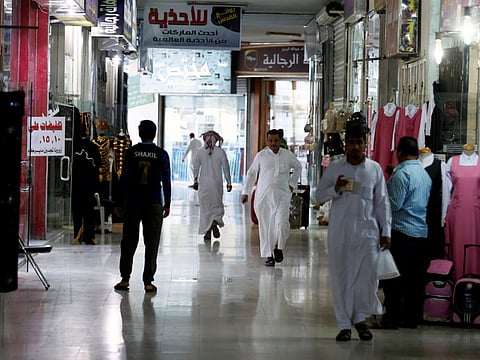Distortion of a peaceful religion
Islam has suffered a great deal because of what was being preached and projected by people who don’t understand the great faith

Throughout history, callous individuals have used religion as a tool to further their causes. To sway the poor and uneducated, they would often appear in the guise of holy men and preachers of knowledge and peddle their personal beliefs in the form of holy edicts.
Saudi Arabia has not been a stranger to such phenomena. In fact, in the past three or four decades, edicts or fatwas have been misused. These fatwas are supposedly derived from interpretations of the Hadith, the sayings of Prophet Mohammad (PBUH). Clerics were quick to issue edicts based on their personal interpretations and understanding. In many cases, these were actually nothing more than ill-thought expressions of cultural identity.
To round up some of the ridiculous fatwas of the past would take many pages of this paper. Here are a few examples. In May 2007, a fatwa was issued by an Islamic cleric in Egypt, which said a female worker should breast-feed a male colleague to establish a maternal bond between them, in order to overcome the Islamic private meeting law. The cleric based his fatwa on a flawed interpretation of a Hadith.
In 2011, a Saudi preacher said that there would be “no more virgins” if the ban on female drivers is lifted, and relaxing the ban would also see more Saudis of either sex deviate towards pornography. Allowing women to drive would also “provoke a surge in prostitution and divorce”. That within ten years of the ban being lifted, there would be “no more virgins” in that country. On the same subject, in 2013, another Saudi Shaikh issued a fatwa that women who drive risk damaging their ovaries and producing children with clinical problems. “If a woman drives a car, not out of pure necessity, that could have negative physiological impacts ... and physiological studies show that it automatically affects the ovaries and pushes the pelvis upwards,” he stated.
In 2014, a senior Saudi cleric, who is a member of the Kingdom’s Munasaha programme — which reprogrammes and rehabilitates the thought process of those Saudis who had previously been indoctrinated by terror group Al Qaida — shared his concerns that “whoever dies in the land of infidels could go to hell”.
Expressing his opposition to the hundreds of thousands of Saudis who travel to foreign countries during school holidays, the Shaikh also asserted that “Travelling abroad is forbidden in the Sharia, except when dictated by necessity and under certain conditions. Among these conditions is one that the traveller has to be of devout faith, a strong believer and to have solid religious ‘immunity’ against all evil desires.” He further said: “Whoever fears for himself falling for what is forbidden, such as drinking alcohol, should not travel, except when it becomes an extreme necessity.” He went on to add: “God does not love it when Muslims seek to live among non-believers and that even travelling to other Islamic countries is best avoided although it is ‘less undesirable’.”
Such is the divisive nature of these interpretations of the Hadith that it has given rise to legions of extreme thinking in militants who have used these distorted fatwas and interpretations of the Hadith that has finally compelled Saudi Arabia to counter this rising menace. In a royal decree this past week, King Salman Bin Abdul Aziz ordered the establishment of an authority to scrutinise interpretations and applications of the Hadith, which are accounts of the sayings, actions or habits of the Prophet (PBUH) that are used by preachers and jurists to support teachings and edicts on all aspects of life. The ministry said late on Tuesday that this newly-formed authority’s primary purpose would be to “eliminate fake and extremist texts and any text that contradicts the teachings of Islam and justifies the committing of crimes, murders and terrorist acts”.
Islamist groups such as Daesh (the self-proclaimed Islamic State of Iraq and the Levant) and Al Qaida have used interpretations of Hadiths — numbered in the thousands and pored over by scholars for centuries — to justify violence and to urge supporters to carry out attacks. The Kingdom is trying to prevent them from being used to justify violence or terrorism, the Culture and Information Ministry said. This is a welcome move that should finally put an end to the rubbish that has been spouting from the mouths of some extremists cloaked as preachers. Islam has suffered a great deal because of what was being preached and projected by some who promoted their interpretations to their followers as a means to be divisive and intolerant.
Such extremist toxins espoused by some leading religious fundamentalists had to be stopped and Saudi Arabia has now taken up the challenge. Islam is no more to suffer these fools.
Tariq A. Al Maeena is a Saudi socio-political commentator. He lives in Jeddah. You can follow him on Twitter @talmaeena.


